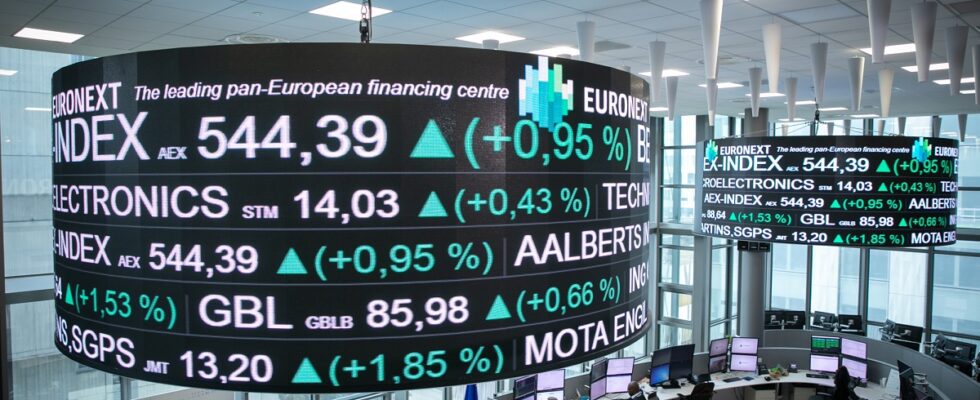(BFM Bourse) – The Parisian index fell 2.9% at the close on Monday, plagued by fear of seeing other establishments be dragged down by the fall of the Californian bank Silicon Valley Bank.
The financial markets started this week as they ended the previous one: on a very bad foot. The CAC 40 was close to capitulation, and finally lost 2.9% to 7,011.50 points after losing more than 3% in session and falling below 7,000 points, with a low of 6,979.55 points in course of the day. The index posted its biggest drop since December 15 (-3.09%).
All of the European markets suffered: the DAX 40 in Frankfurt lost 3.04% while in London the FTSE 100 lost 2.58%. Wall Street for its part found colors: the S&P 500 took 0.4% at the close of the European markets, while the Nasdaq Composite advanced by 1.1%.
>> Access our exclusive graphic analyses, and enter into the confidence of the Trading Portfolio
Markets were hurt by fears surrounding the failure of Silicon Valley Bank (SVB) and its ramifications. This American bank cast an icy chill on Thursday by announcing emergency sales of debt securities and was faced with massive withdrawals of deposits from its customers. It has now been closed and placed under the control of the American Deposit Guarantee Agency (FIDC).
This measure should make it possible to avoid a bank panic. In the same vein, another establishment, Signature Bank, was closed. The FDIC will guarantee all of the deposits of these two banks.
Biden tries to reassure
Speeches have multiplied in an attempt to reassure investors and savers. Americans can “have confidence” in a “solid” banking system, said US President Joe Biden from the White House, assuring that he would do “whatever is necessary” to keep it that way. . French Economy Minister Bruno Le Maire urged investors to “calm down” and “look at reality”. The Banque de France has also assured that the tricolor establishments were not exposed to the bankruptcy of SVB.
While many experts believe that large establishments do not run a real risk of contagion, the market fears that other regional establishments in the United States will suffer from difficulties. Evidenced by the plunge on Wall Street of First Republic Bank, more than 60%, and the fall of 30% of PacWest Bancorp.
In addition, the setbacks of these banks show the difficulties that can be created by cycles of monetary tightening by the major central banks, which reveal banking weaknesses.
Relaxation on rates
As a result, the market is beginning to anticipate less steep rate hikes from the major central banks. Goldman Sachs estimates that the US Federal Reserve (Fed) should raise rates by 25 basis points (0.25 percentage point) after its next meeting on March 22, compared to its previous expectation of 50 basis points (0.5 points).
This explains why bond yields are falling sharply. For example, Germany’s 10-year bond is trading at 2.287% versus 2.504% on Friday.
“The market thinks that faced with the risk of tensions in the banking market, central banks will be forced to slow down the pace of their monetary tightening”, underlines Louis Harreau, economist in charge of monitoring the European Central Bank (ECB).
On the value side, bright red has taken over the market. No stocks ended up in positive territory. If the banks are at the back of the pack, with Société Générale and BNP Paribas which lost 6.8% and 6.2%, they are accompanied by several other cyclical stocks. Alstom lost 6.2% and Renault 4.3%.
Excluding the CAC 40, Faurecia fell by more than 8%, also suffering from a degradation of Morgan Stanley to “line weighting” against “overweight” previously.
Icade limited its decline to 1.1% while Oddo BHF raised its opinion to “outperformance” seeing catalysts for action in the short term.
On the other markets, the euro gained 0.9% against the dollar at 1.0676 dollars, benefiting from expectations of more moderate rate hikes from the Fed, which weakened the greenback. Oil did not escape the fall in risky assets but limited its losses after losing more than 3% during the session. The North Sea Brent contract for May delivery fell 0.8% to $82.10 a barrel while New York-listed WTI for April delivery fell 0.9% to $75.96 a barrel.
Julien Marion – ©2023 BFM Bourse
